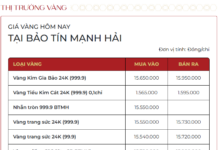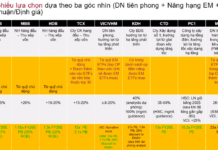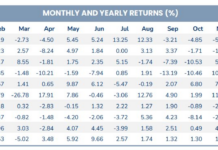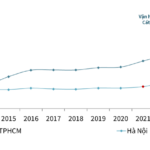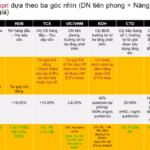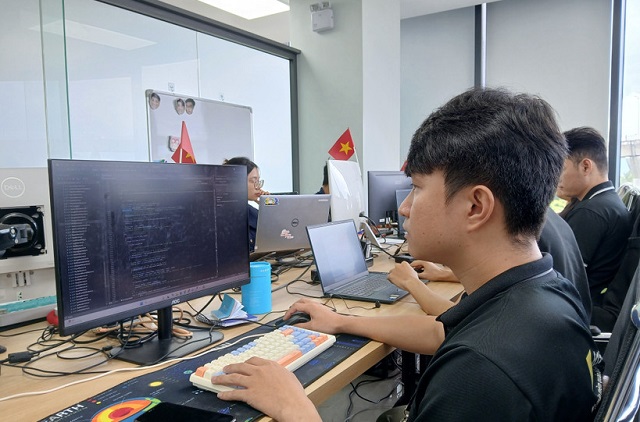
Support for startups in the semiconductor and AI industries with workspace provided at the Da Nang IT Park and Software Park No. 2. (Photo: My Ha/VNA)
|
A host of new economic policies will come into effect from September 1, 2025, focusing on key areas such as support for ancillary industries, expanded capital and mechanisms for creative startups, and finance and banking.
Government issues decree to support ancillary industries
The government has issued Decree No. 205/2025/ND-CP, amending and supplementing Decree No. 111/2015 on the development of ancillary industries. The new decree, effective from September 1, 2025, expands support for businesses producing components, parts, and materials, while also offering enhanced incentives related to land, capital, and technology.
According to the new regulations, projects constructing research and development facilities for ancillary industrial products will be exempt from land rent and receive financial support for equipment investment. Enterprises in the prioritized development list will be supported with up to 50-70% of the cost of research, human resource training, technology transfer, testing, and brand building, as well as market promotion. These projects can also access various funds, such as the National Technology Innovation Fund and the Science and Technology Development Fund.
Additionally, the decree supplements support in legal, environmental protection, and M&A consulting, while also urging the establishment of technical centers to support the development of ancillary industries, helping businesses enhance their capabilities, increase their value, and participate more deeply in the global supply chain.

The Governor stated that the State Bank will closely monitor exchange rate developments, even on a daily basis, to proactively regulate the market. (Photo: Vietnam+)
|
Decree 210/2025 expands capital and mechanisms for creative startups
The government has issued Decree No. 210/2025/ND-CP amending and supplementing a number of regulations on investment in small and medium-sized creative startup enterprises. This decree, effective from September 1, 2025, aims to improve the legal framework and create more favorable conditions for startup investment activities in Vietnam.
According to the new regulations, startup innovation funds can mobilize capital from 2 to 30 investors, a wider range than before. Capital contribution in kind is now allowed in the form of land use rights, intellectual property, technology, or other legal assets, in addition to cash. Moreover, the investment mechanism has become more flexible with the addition of share purchase rights and convertible instruments, apart from direct capital contribution.
Notably, the decree permits funds to make term deposits and purchase certificates of deposit with idle capital, while still ensuring capital safety and adhering to the fund’s operating purposes. The management and reporting mechanisms of the funds have also been tightened, enhancing transparency and the accountability of investors.
These amendments are expected to facilitate creative startups’ access to diverse sources of capital at an earlier stage and improve the operational efficiency of domestic investment funds.
Autonomy in finance granted to national universities
The government has issued Decree No. 201/2025/ND-CP stipulating the functions, tasks, powers, and mechanisms of national universities and their member institutions. Effective from September 1, 2025, the decree notably grants greater financial autonomy to national universities to enhance their initiative and effective use of resources.
According to the decree, national universities are authorized to decide on revenue and expenditure, allocation, and use of the state budget. They are also allowed to mobilize socialized capital, sponsorships, and other legal sources of income.
These resources can be used for training, scientific research, innovation, and infrastructure development. While the state budget allocation remains, it is now linked to a mechanism of inspection and supervision to ensure publicity and transparency.
The decree also expands autonomy in investment management, construction of infrastructure, exploitation of public assets, and signing of cooperation agreements domestically and internationally. This mechanism is expected to create a flexible environment for national universities to promote their potential, improve training quality, and directly contribute to socio-economic development.
Decree 211/2025: Tightening the management of civil cryptography and increasing economic sanctions
The government has issued Decree No. 211/2025/ND-CP regulating civil cryptography activities and amending and supplementing a number of articles of Decree No. 15/2020/ND-CP. This decree takes effect on September 9, 2025.
Notably, this decree tightens the management of the field of civil cryptography in business, import and export of products, and services to ensure national security while also promoting transparency in commercial activities.
According to the new regulations, violating enterprises can be fined from a warning to a fine of up to VND 180 million, depending on the value of the infringing goods and the nature of the violation.
In addition to the fine, supplementary handling forms such as license revocation, suspension of business, or forced re-export of products will be applied. This move aims to prevent the exploitation of cryptography technology for profit or negatively impacting socio-economic stability.
State Bank tightens capital adequacy ratio
The State Bank has issued Circular No. 14/2025/TT-NHNN stipulating the capital adequacy ratio for commercial banks and branches of foreign banks, effective from September 15, 2025.
According to the regulations, banks must maintain a minimum of 4.5% for the core capital adequacy ratio (Tier 1), 6% for the Tier 1 capital adequacy ratio, and 8% for the capital adequacy ratio (CAR). For banks with subsidiaries, in addition to separate requirements, they must also ensure consolidated ratios.
The circular also supplements the Conservation Buffer (CCB) and the Countercyclical Capital Buffer (CCyB), requiring banks to gradually increase their provisions from 0.625% in the first year to 2.5% from the fourth year, thereby increasing the CAR to a minimum of 10.5%. Banks are only allowed to pay dividends when they fully meet these ratios.
Notably, the State Bank has the right to require banks to maintain a higher ratio if risks are detected, ensuring the safety of operations and the national financial system. The new regulations are expected to promote transparency, strengthen market confidence, and support sustainable growth.
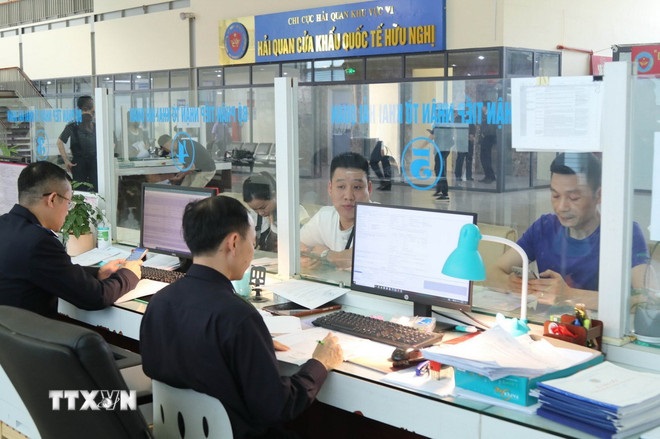
Hữu Nghị (Lạng Sơn) International Border Gate Customs procedures for enterprises. (Photo: Quang Duy/VNA)
|
Amendment to regulations on Vietnam-China border trade payments
The State Bank has issued Circular No. 17/2025/TT-NHNN (effective from September 15, 2025) amending and supplementing Circular No. 19/2018/TT-NHNN on foreign exchange management for Vietnam-China border trade activities.
Accordingly, the payment method has been supplemented to allow payment in freely convertible foreign currencies, Chinese yuan (CNY), or VND through border gate banks, as well as offsetting the difference in import-export transactions. This regulation increases flexibility, transparency, and reduces risks in border trade payments.
The circular also adjusts the periodic reporting responsibility: quarterly, before the 20th of the first month of the next quarter, border gate banks must submit reports according to new templates to the State Bank. At the same time, many old clauses and appendices of Circular 19/2018 are repealed or replaced to suit practical conditions and bilateral agreements.
These amendments are expected to promote border trade, facilitate import and export enterprises, and strengthen foreign exchange management and ensure the safety of the banking system.
Supervision of people’s credit funds and microfinance institutions
The State Bank has issued Circular No. 18/2025/TT-NHNN, effective from September 15, 2025, regulating the collection, exploitation, sharing of information, and reporting to strengthen the supervision of people’s credit funds and microfinance institutions.
According to the circular, units must provide detailed data on borrowing and lending customers, deposits, lending activities, bad debts, finance, human resources, etc., through the Supervision Information System. The information is connected online and automatically reviewed to help detect risks early and handle them promptly.
In addition to the State Bank, units such as the Vietnam Deposit Insurance, and the Cooperative Bank are also allowed to exploit information to serve capital management and supervise the safety of the system. The new regulations also tighten reporting responsibilities, requiring corrections of errors within three days, while also ensuring data confidentiality…
Van Xuyen
– 15:15 27/08/2025










